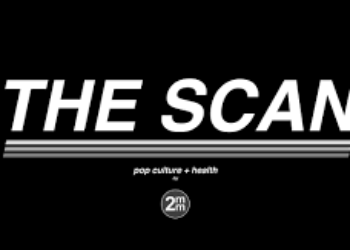Delaying measles vaccination after 15 months may increase seizure risk
Image: PD
1. Vaccinations administered in the first year of life were not associated with increased risk of post-vaccination seizures, regardless of whether they were on-time or delayed.
2. Delaying administration of measles-containing vaccinations after 15 months of age increased risk of post-vaccination seizures compared to on-time vaccination; the highest risk was associated with the measles-mumps-rubella-varicella vaccine (MMRV).
Evidence Rating Level: 3 (Average)
Study Rundown: More children are receiving delayed vaccinations due to parental intent, lack of health insurance, or other barriers to immunization. This study examined the risk of post-vaccination seizures after the first dose of each vaccine administered in the first two years of life and compared on-time vaccination versus delayed schedule vaccination. Vaccines administered in the first year of life were not significantly associated with seizures, regardless of vaccine type and whether the vaccine was administered on-time or delayed. The measles-mumps-rubella (MMR) vaccine, which is scheduled for administration between 12 to 15 months of age, had a three-fold higher risk of post-vaccination seizure if delayed past 15 months. In children receiving the MMRV vaccine, delayed administration doubled the risk of post-vaccination seizures, compared to the MMR vaccine. This study is limited by analysis that did not account for simultaneous administration of different vaccines. However, these results provide support for on-time vaccination, especially given other known benefits.
Click to read the study published today in Pediatrics
Relevant Reading: Effect of age on the risk of fever and seizures following immunization with measles-containing vaccines in children
In-Depth [case-series]: The Vaccine Safety Datalink was utilized to identify a cohort of 323 247 US children born from 2004-2008. ICD.9 coding was used to identify those that had seizures between age 38 days to 2 years, excluding children with chronic seizure disorders. Among vaccines recommended for administration at 2 months (diphtheria-tetanus-acellular pertussis [DTaP], pneumococcal conjugated vaccine [PCV], haemophilius influenza type B [HIB], inactivated poliovirus [IPV], and rotavirus), there was no association with vaccination and seizures, even with delayed vaccination. The MMR vaccine was associated with increased risk of seizure in the 7 to 10 days post-vaccination (incident risk ratio [IRR] 2.65; 95% CI 1.99-3.55). This risk increased to greater than 6-fold when vaccine administration was delayed past 15 months of age (IRR 6.53; 95% CI 3.15-13.53). The MMRV vaccination was also associated with increased risk of post-vaccination seizure (IRR 4.95; 95% 3.68-6.66), and this risk increased to almost 10-fold when delayed past 15 months (IRR 9.80; 95% CI 4.35-22.06).
More from this author: 65% of alcohol-related childhood vehicular deaths related to riding with drunk drivers; Prenatal SSRI use may increase risk of autism; Roadway design may decrease risk of child pedestrian collisions
©2012-2014 2minutemedicine.com. All rights reserved. No works may be reproduced without expressed written consent from 2minutemedicine.com. Disclaimer: We present factual information directly from peer reviewed medical journals. No post should be construed as medical advice and is not intended as such by the authors, editors, staff or by 2minutemedicine.com. PLEASE SEE A HEALTHCARE PROVIDER IN YOUR AREA IF YOU SEEK MEDICAL ADVICE OF ANY SORT.





![New drug for Chagas disease shows antitrypanosomal activity [CHAGASAZOL trial]](https://www.2minutemedicine.com/wp-content/uploads/2014/05/t-cruzi-75x75.jpg)

